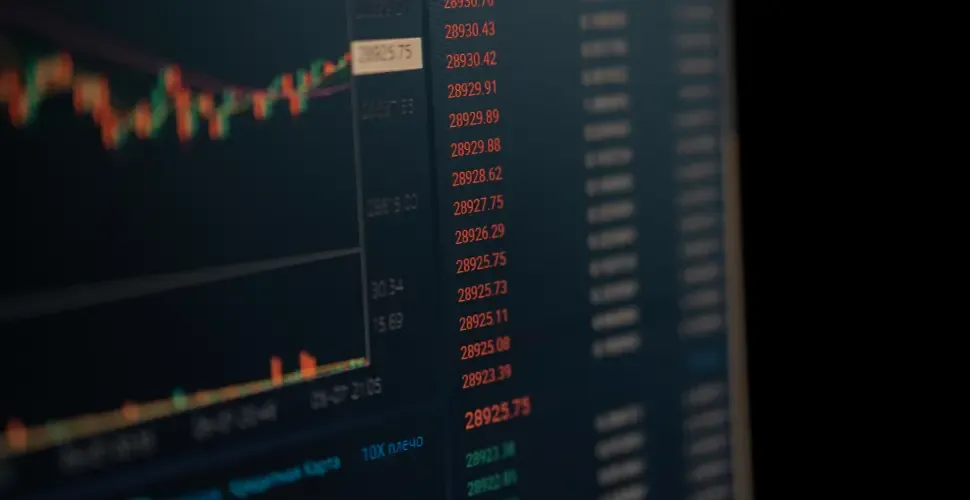6 min read
Share
In this article, we explore how political events influence Forex trading and learn strategies to navigate this complex landscape.

Introduction
In the world of forex trading, there are many different things that move the markets. However, one of the most powerful market movers is political events.
Forex traders who understand this and know how to effectively navigate the relationship between politics and the foreign exchange market will be better positioned to navigate fluctuations in the forex market and capitalize on political shifts.
How Politics Shapes the Forex Market
The forex market is incredibly sensitive to political shifts and changes, and even seemingly insignificant geopolitical events can cause market volatility. These changes and resulting volatility can cause major currency fluctuations in the forex markets and can affect everything from interest rates to the value of a country's currency.
Forex traders who understand the relationship between currency exchange rates and geopolitical events have a significant advantage in profiting from currency fluctuations.
A simple political announcement or change in leadership can trigger a major ripple effect in the forex market and completely shift market sentiment regarding a country's currency.
This interconnected nature of politics and currency markets makes it essential for forex traders to develop a comprehensive understanding of both domains in order to effectively execute their trading strategies.
The Critical Role of Central Banks in Currency Values
Central banks serve as the bridge between political decisions and market outcomes. Central bank decisions, whether through monetary policy adjustments or interest rate changes, directly influence currency exchange rates.
However, these institutions don't operate in isolation. Central bank decisions reflect the broader political and economic objectives of a nation, making them crucial players in the forex markets. Their policy decisions inevitably affect currency exchange rates and foreign investment in a nation.
Understanding International Trade and Currency Relationships
Global trade relations between different countries are another pillar in understanding currency prices. Goods and services exchanged between countries.
Typically, the more goods and services a country exports, the stronger its currency will become.
For example, if the US is exporting a lot of goods and services, they will expect payment in US dollars from other nations as other countries will need dollars to complete the transaction, pushing the value of the dollar up as there is a greater demand for it.
Therefore, when countries engage in trade disputes or sign new trade agreements, this can have a notable impact on the value of a currency.
Economic Factors and Their Political Context
Political decisions almost always have a direct impact on economic factors and performance. For example, when governments implement new economic policies, they create a ripple effect throughout the financial markets.
Moreover, economic statistics such as the employment rate, GDP growth rate, and inflation rate are often used as gauges of the success or failure of political decisions and how well a country is doing economically. These economic indicators also play a big role in central bank decisions.
Political Decisions and Currency Volatility
The US dollar, as the world's primary reserve currency, responds to both domestic and international political developments. When the Federal Reserve makes policy changes, the effects ripple through the entire foreign exchange market. Similarly, the Japanese yen often moves significantly during periods of Asian political tension.
The interconnected nature of modern financial markets means that events in one country often affect multiple currencies. This is particularly evident when examining how oil prices affect the currencies of major oil-producing nations or how changes in interest rates in one country influence capital flows globally.
Managing Risk During Political Upheaval
So, the question is, 'How should traders navigate uncertainty, political uncertainty and changes?' When there is uncertainty and political changes, investors tend to flock to 'safe-haven currencies.'
Three of the most common safe-haven currencies are the US Dollar, Japanese Yen, and Swiss Franc. Therefore, when there is increased uncertainty, the value of safe-haven currencies tends to rise as investors seek safety.
In extreme cases, when even safe-haven currencies are affected, investors typically seek safety in precious metals such as gold, silver, and US treasury bonds.
The Role of Economic Policy in Currency Markets
Economic policy decisions often have lasting effects on currency rates. When governments implement new policies, whether related to trade, taxation, or spending, these changes can create sustained trends in currency values.
Understanding the relationship between policy decisions and market reactions helps traders identify potential trading opportunities.
Trading Strategies for Political Events
Now that we understand the intricacies of how politics impacts the forex market, how can you mitigate your risk during volatile times or even profit from a shifting political landscape?
There are 5 factors for careful consideration when trading the Forex market when political factors are influencing the currency markets.
Pay Close Attention to The News:
You will need to pay close attention to the news as a change in market sentiment will usually be preceded by economic indicators, a change in the political landscape, or central bank policy changes.
Consider Scalping:
During times of heightened volatility, currencies can experience quick and sudden price fluctuations. Scalping, which refers to trades that are entered and exited very quickly, is one of the best trading strategies to profit from quick and rapid price movements.
Hedge if Necessary:
Consider trading with a hedge in place if you are concerned about rapid (and unexpected) movements in the market. These hedges can be long-term positions, shorter-term trades, or using forex options.
Manage Your Risk:
During times of a changing political landscape, risk management is more crucial than ever. Use a tight stop loss to limit your losses and have a take profit in place to prevent the market from suddenly turning against you and wiping out all your gains.
Consider Safer Currencies:
When uncertainty is high and politics are causing rapid price fluctuations, consider trading safer currencies like the US Dollar, Japanese Yen, or the Swiss Franc, which are less susceptible to rapid price fluctuations.
Mastering Political Analysis in Forex
Success in forex trading through political terms requires a deep understanding of how political events influence currency values. By monitoring geopolitical events, understanding their implications, and maintaining a disciplined trading approach, traders can better navigate the complex world of currency trading.
Remember that the foreign exchange market is constantly evolving, and staying informed about political developments is crucial for long-term success. Whether you're trading the Swiss franc, monitoring exchange rates, or analyzing economic factors, understanding the political context helps make more informed trading decisions.
By staying informed about political developments and understanding their market implications, traders can better position themselves for success in this challenging but rewarding market.
Join our community
Get an insight from other users about SeacrestFunded and their experiences. 131K+ members and counting





